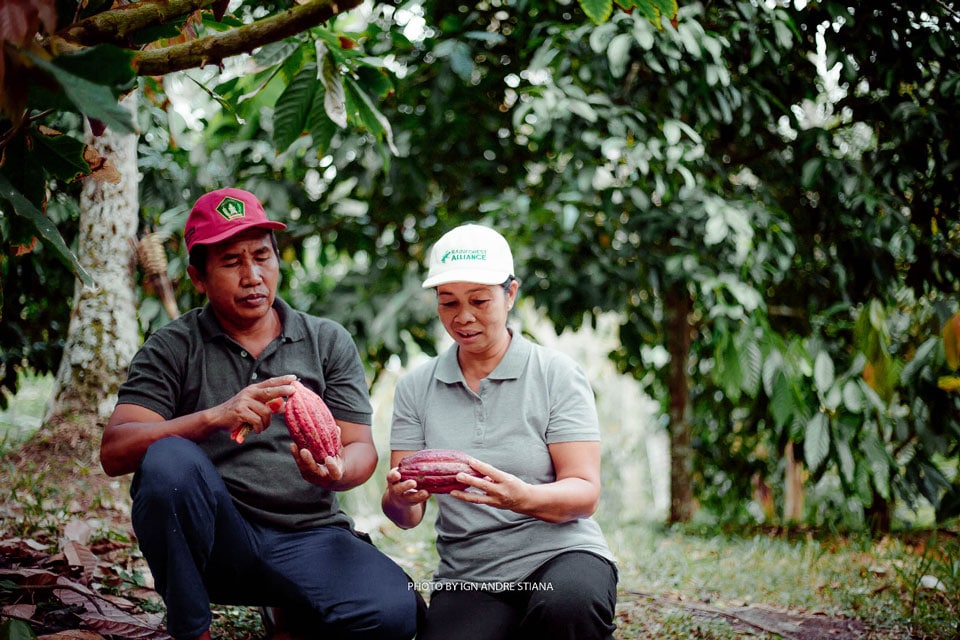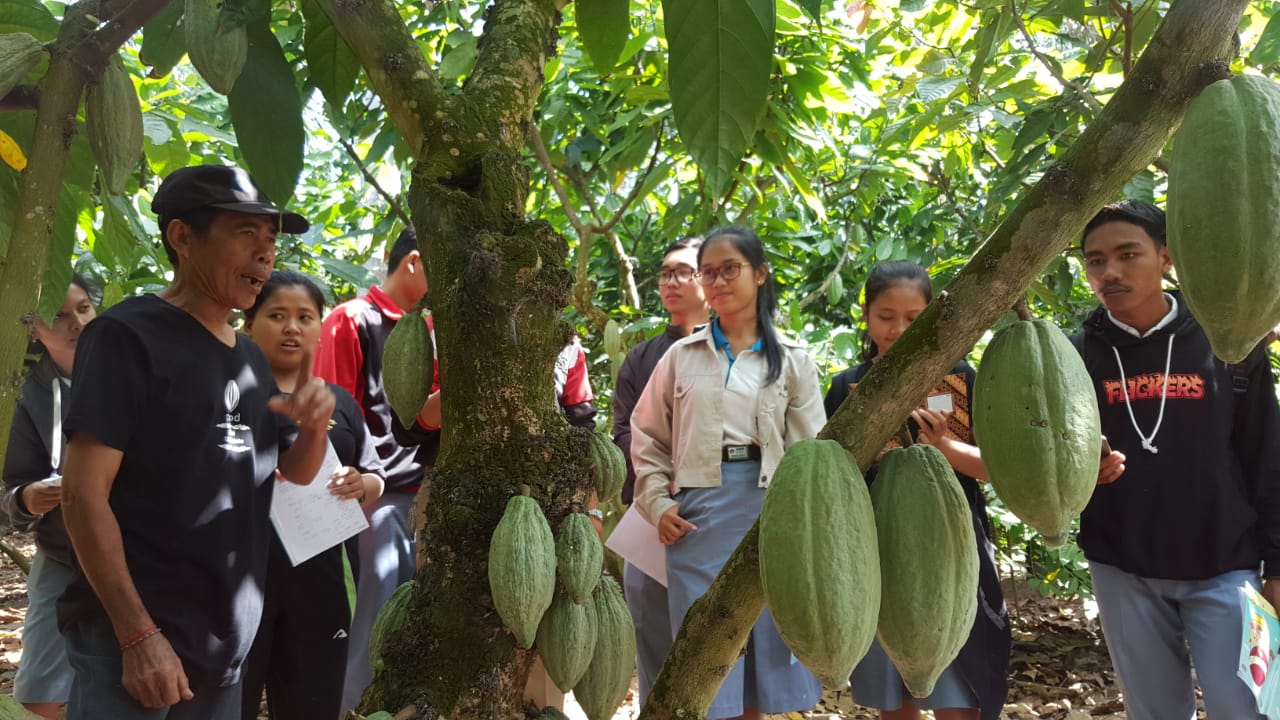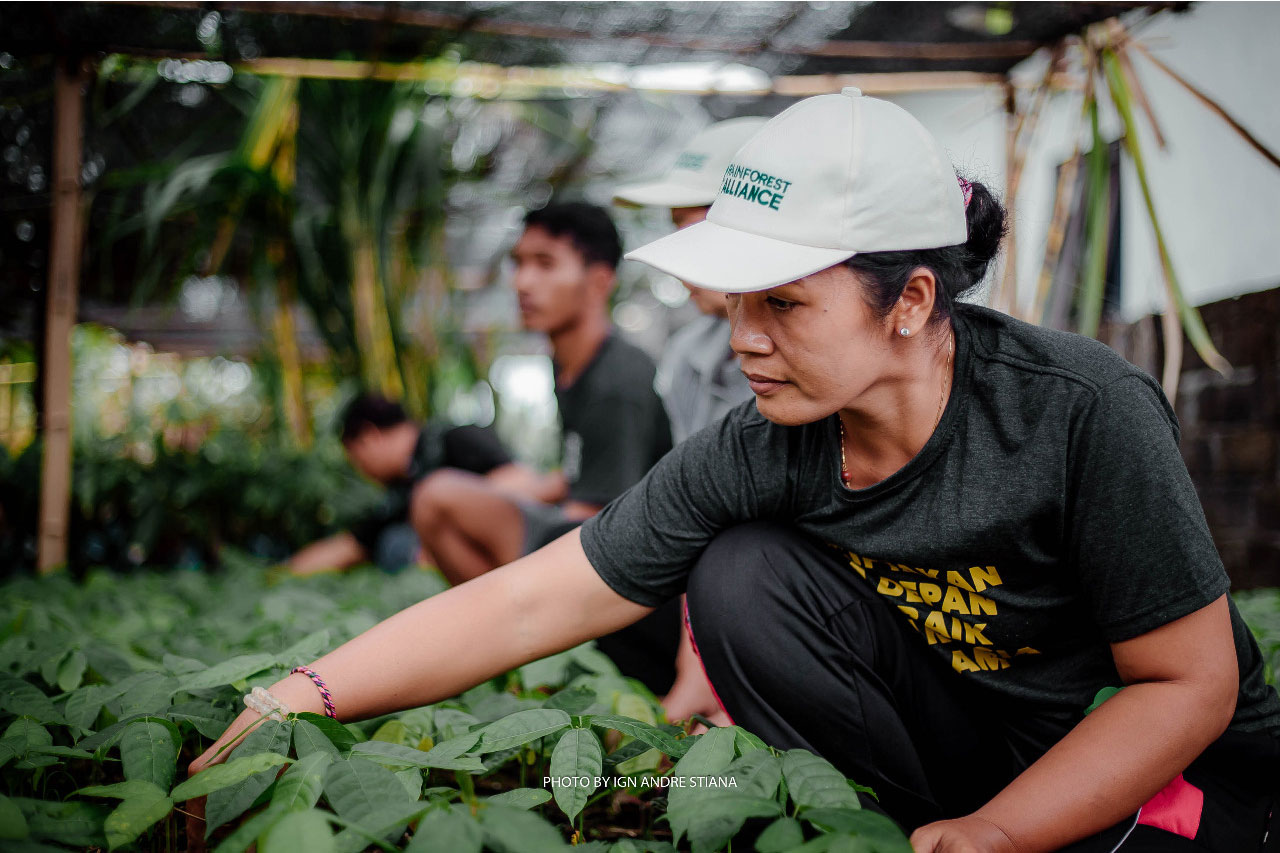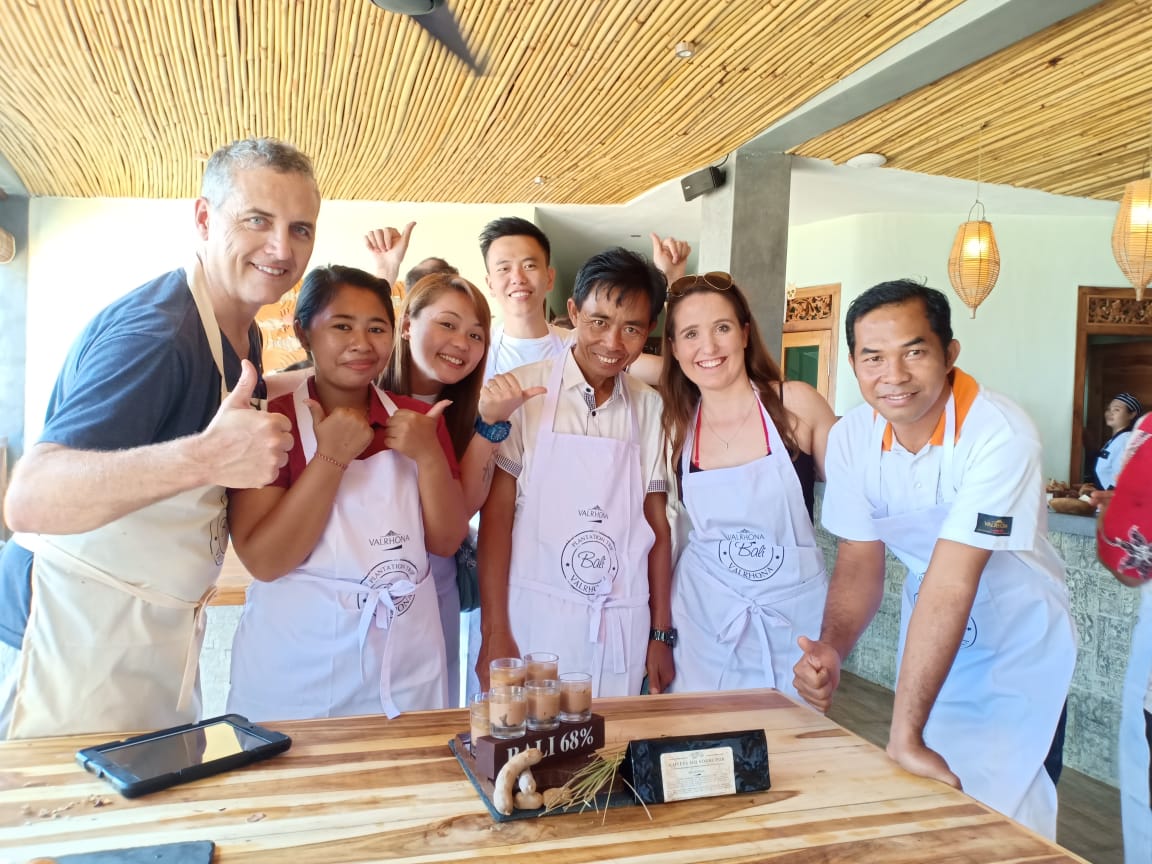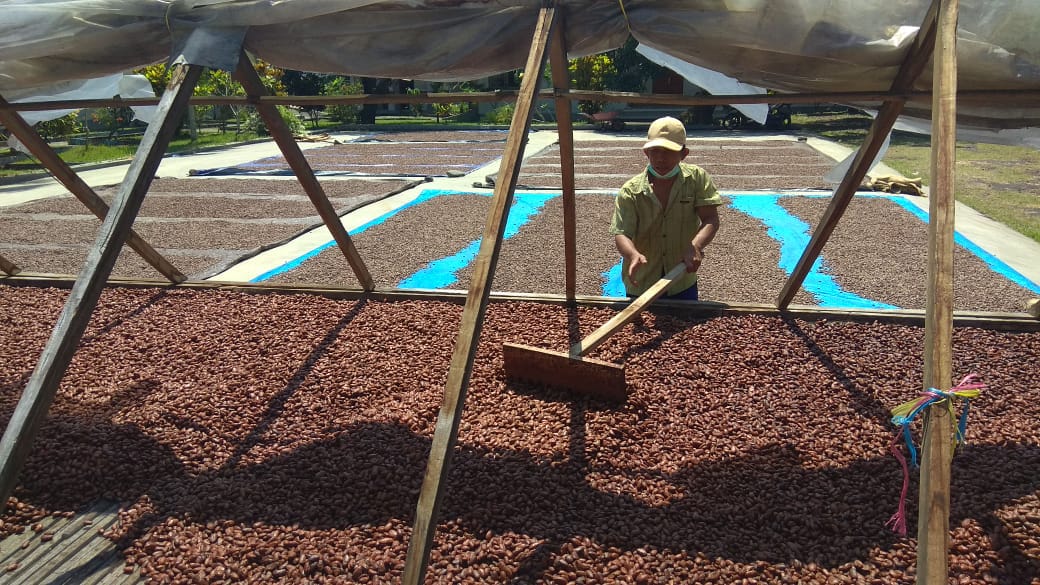SUSTAINABLE CACAO PROGRAM
2011 - Present
More than million farmers in Indonesia are responsible for growing most of the world’s cacao. These farmers continually struggle with unproductive, unfermented, aging cacao trees they cannot afford to replace. In some places, their yields, incomes and quality of life are in decline. International Trade Center, 2017 Although the growing global demand for sustainably produced cocoa presents opportunities for farmers in Indonesia, global market access and gaining sustainability certifications still remains a challenge. Kalimajari brings the capability to empower cocoa producers’ organizations by offering a systematic way towards better and more sustainable practices in production while increasing access and competitiveness in international markets.
Working area: Bali, Sulawesi, Kalimantan, Papua, Sumatra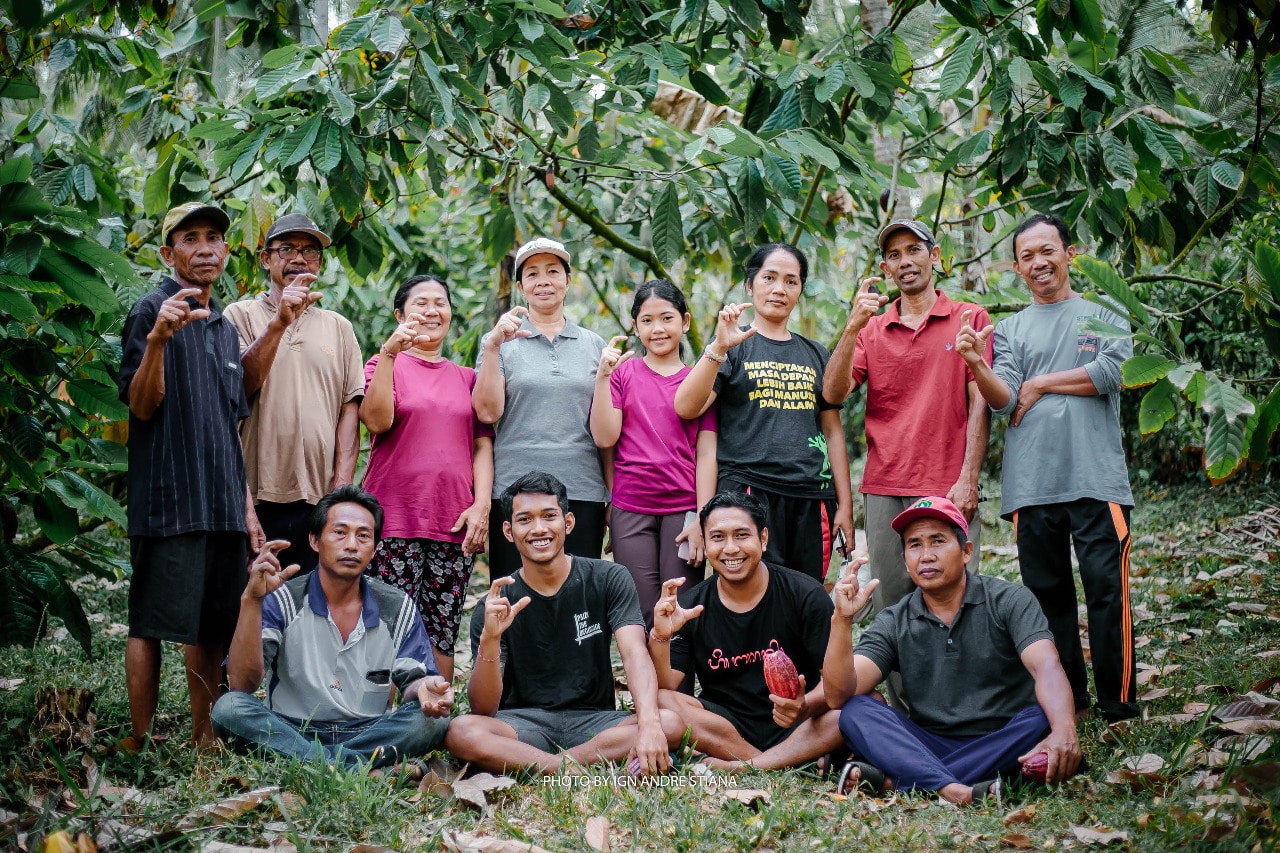
Three Pillars of Sustainable Cacao Program
Kalimajari understands the need to empower women farmers in the supply chain and beyond. The idea of gender justice is about encouraging women to work more or take more workloads in a hope that this would lead to women being more in-charge of assets. As a result or what the reality at the moment is, this approach added multiple burdens to women farmers, and they opted to work intensively in the farm and gave the opportunity of training and management works to the men as they had already too much work in the farm. Women also multiple times refused to attend farmers’ meetings as they feared public speaking or being negated while speaking. Kalimajari realized this and other issues challenging the relationship between women and men in the farm and off farm. Kalimajari suggested having gender training that would increase the team’s capacity in gender issues. Being aware of initiatives and innovations carried out all over Indonesia, Kalimajari also working towards gender budgeting in collaboration with local government.
Youth are driving change in the sector by employing new systems of production and introducing technology. The adoption of sound agricultural practices and the right planting materials can increase productivity up to 300 hundred percent. Here is some of their highlights to involve the young people in Jembrana:
- AJS Scholarship Program
- Internship program
- MSC Trainings
Research Student Scholarship (AJS) is a program collaboration amongst Kalimajari, Jembrana government and SLOKA Institute through BaleBengong. It is a scholarship for 10 selected students (SMA/SMK) in Jembrana regency to do a deep research about cacao potentiality in their own area. It aimed to supports the young people and spreading the interest in agricultural sector, especially in cacao.
Kalimajari’s internship program aims to better position young people to benefit from grassroot agricultural activities especially in cacao and seaweed opportunities. It provides a platform for young people to develop skills, access work experience and build the networks required to meaningful employment in the agricultural field. And it also fosters positive perceptions about youth amongst NGO, CSO, public and private sector employers.
The importance of the participation approach in monitoring and evaluation activities needs to be recognized as a strategic indicator in evaluating SUBAK projects. This is based on the awareness of the importance of increasing efficiency and effectiveness in managing development projects through the involvement of beneficiary communities in this case is beneficiary of the Kakao Lestari program in Jembrana. This MSC training is expected to be based on the collection of stories, systematic selection of stories, and analysis of stories of significant changes from interventions carried out so that they can be used as dissemination of information from activities in the field to public space. Through this method, real sounds from the field (voice from the field) and their observations from visual photos, can be used as a basis for evaluation and will be disseminated more widely, so that eventually it becomes a learning media for all parties.


